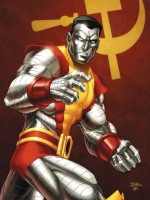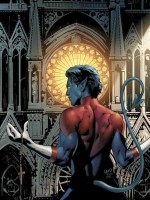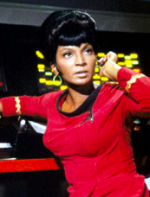Don’t judge a person by their X-gene
Growing up I remember how important teaching diversity was in the education system. Even though I grew up in a predominantly homogenous city, the importance of acceptance and tolerance for all people was heavily instructed.
At the time I wasn’t able to put one and one together, but these morals weren’t new to me; thanks in particular to the Uncanny X-Men. The themes and characters that the X-Men have often worked with are some of the most poignant and relevant explorations into the problems that plague our society.
From the beginning the X-Men introduced readers to an unexpected group of heroes that were far from typical. Unlike the characters that Stan Lee had created previously, the X-Men were so captivating because of their social standing. A cadre of mutants who were feared and hated, yet still fought to protect those who weren’t like them. While Peter Parker fought for karmic justice, and Thor for godly honor, the X-Men did so simply to be accepted.
Over the years, the X-Men would push the limits of the status quo, and introduce comic fans to numerous heroes and villains that harked from beyond America and our societal values. At a time when civil unrest ran rampant, the X-Men gave a forceful voice to some of the most persecuted groups in America. In fact Storm was the first major female African-American character in comics whose relevance has proven it’s worth over the past 37 years. In the same way that Nichelle Nichols challenged the Blaxploitation of African Americans as Uhura on Star Trek, Storm was developed as a primary character in a demographic that normally would not be known for its social innovation.
The X-Men’s willingness to introduce ethnic characters would expand to make one of the most diverse superhero teams that has ever existed in comics. From the likes of the hulking Russian, Colossus whose importance and character remained throughout the later years of the Cold War to Dust, a lesser known Morrison creation, who was a practicing Sunni Muslim, during the post-9/11 Islamic scrutiny.
Beyond race though, the issues of discrimination throughout human history have played a vital role in the series. From Charles Xavier being confined to a wheel chair, to Magneto’s hatred of humanity stemming from his experience in the holocaust, even touching on religion and its importance to characters like Nightcrawler and William Stryker. The X-Men have tackled damn near every subject and instilled readers with compassion that extends beyond any comic book.
During the 90’s little was known about the AIDS virus in America beyond that it was affecting the gay community much more than any other set of people. It was even initially called GRID, short for Gay-Related Immune Deficiency. So in 1993 when the Marvel Universe introduced the Legacy Virus, an ailment that specifically targeted mutants, it was hard to not see the comparison. As more information was discovered, primarily that AIDS could in fact infect people outside the gay community, the Legacy Virus too, began to take its toll of the fictional humans of the Marvel U.
Comic books have always been a source of inspiration from the morals that these heroes live by, instructing people of all ages of the importance of just and ambitious lifestyles. While these practices extend beyond the X-Men, they should be credited for their long-time willingness to break conventions and teach a humanitarian perspective about our own society. Some may argue that the morals are lost in the violence, or the “vulgarity”, but these things do exist, regardless of where you live or what creed you live by.



